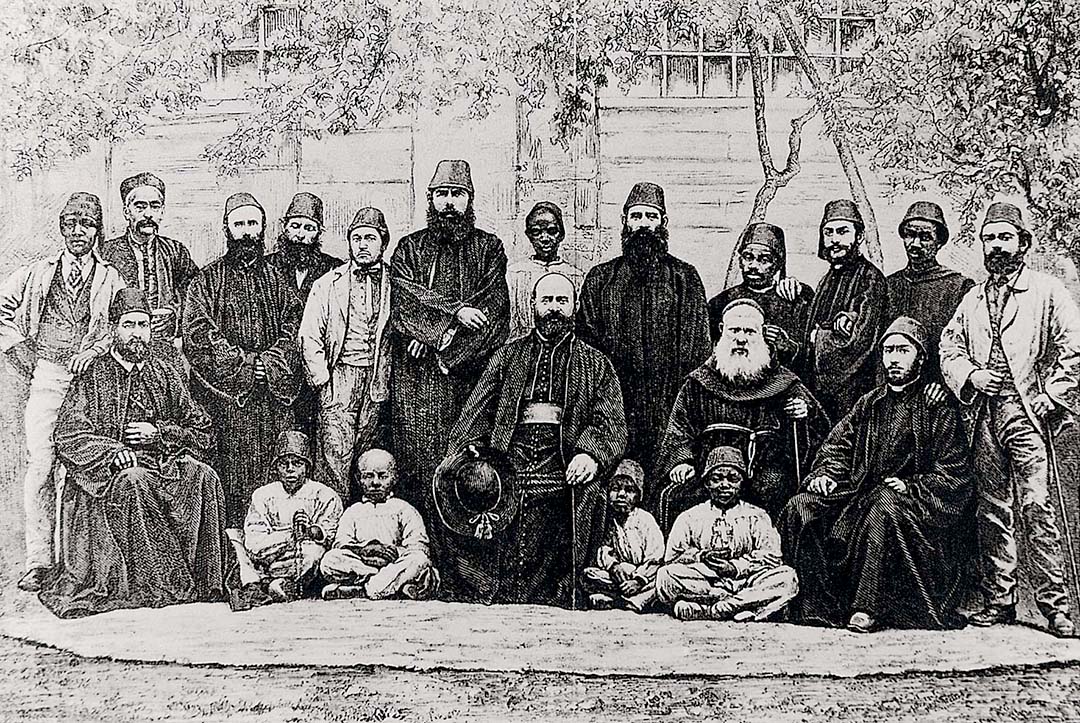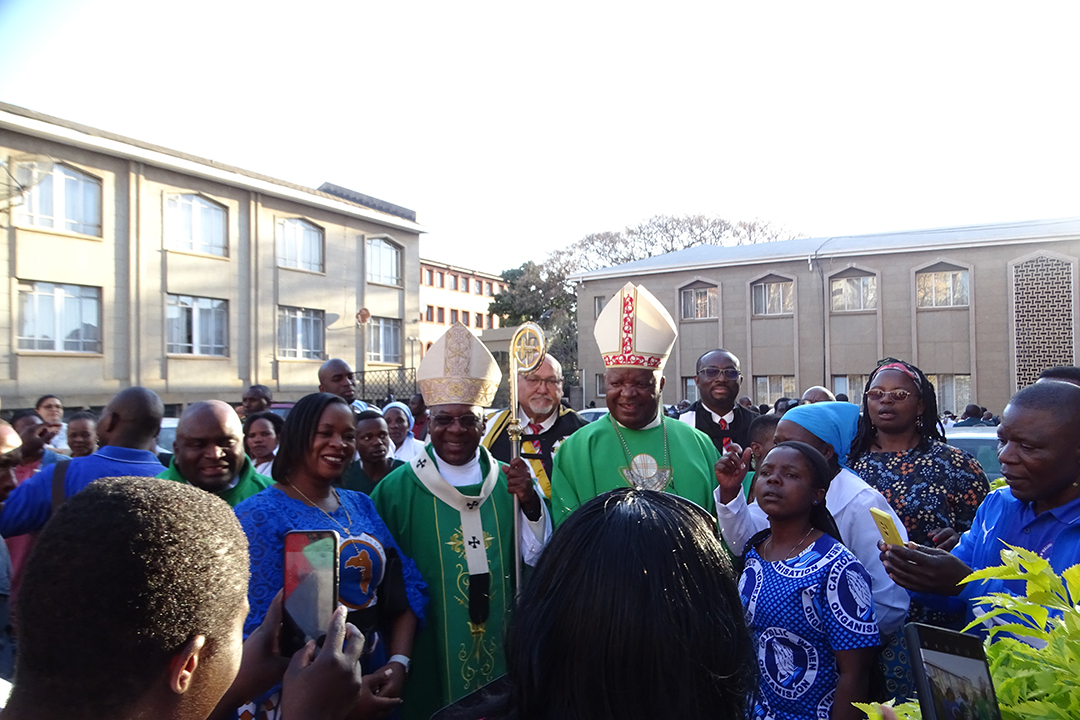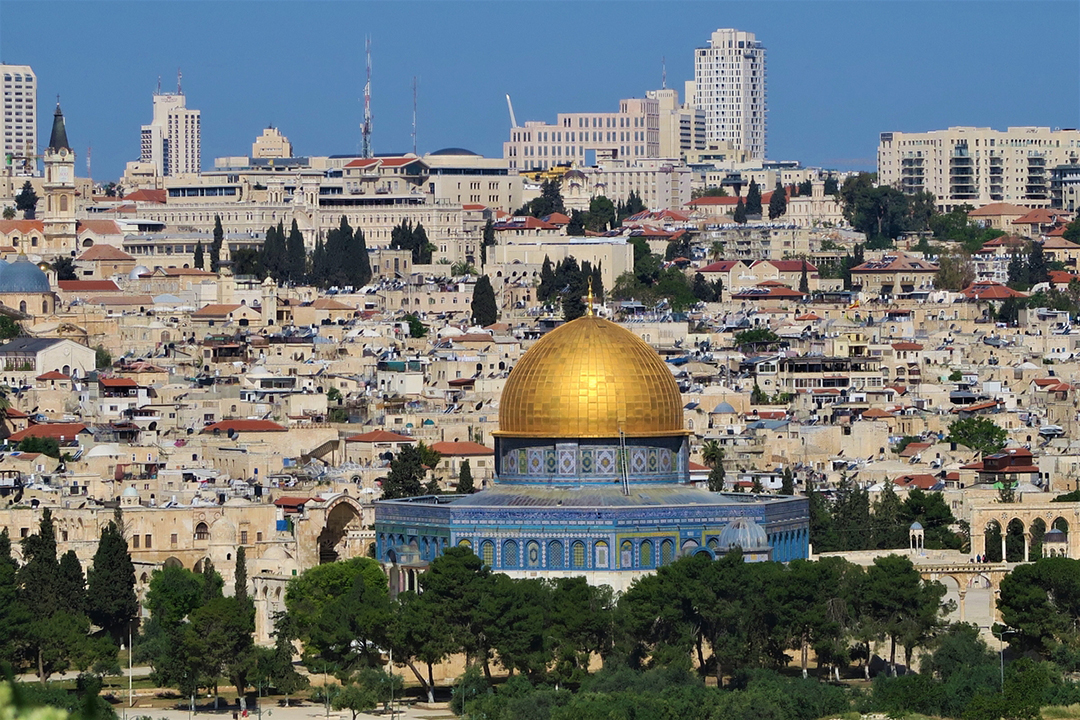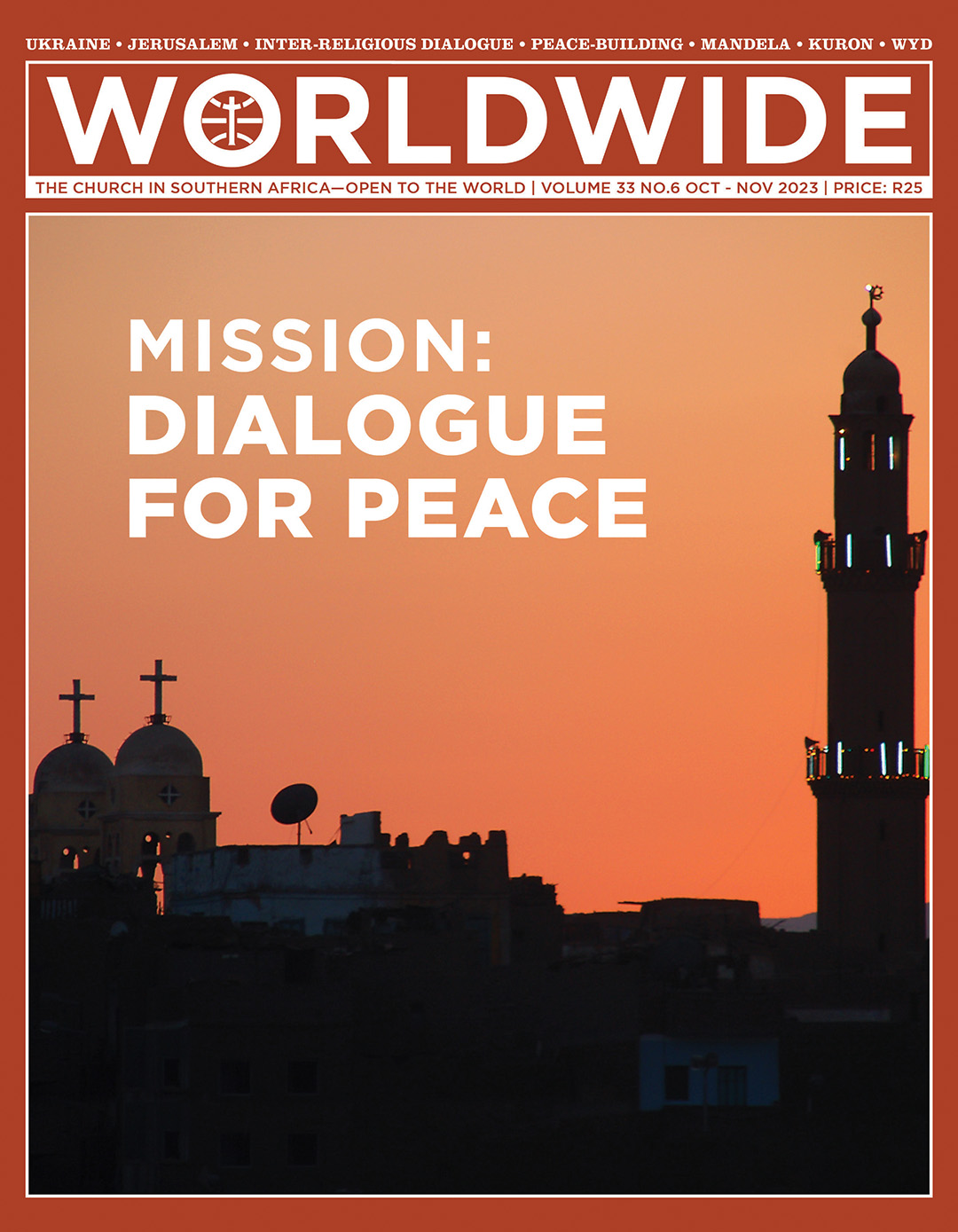
MISSION: DIALOGUE FOR PEACE
The Mosque minarets and church domes of the front cover, facing each other at twilight, transmit a sense of harmony and serenity. The two main religions of the world, Christian and Islam, are called to a mutual understanding and peace-building for the well-being of humanity. The essence of its traditions, far from fundamentalist interpretations, should lead their faithful to pursue together the values of justice and fraternity.
RADAR
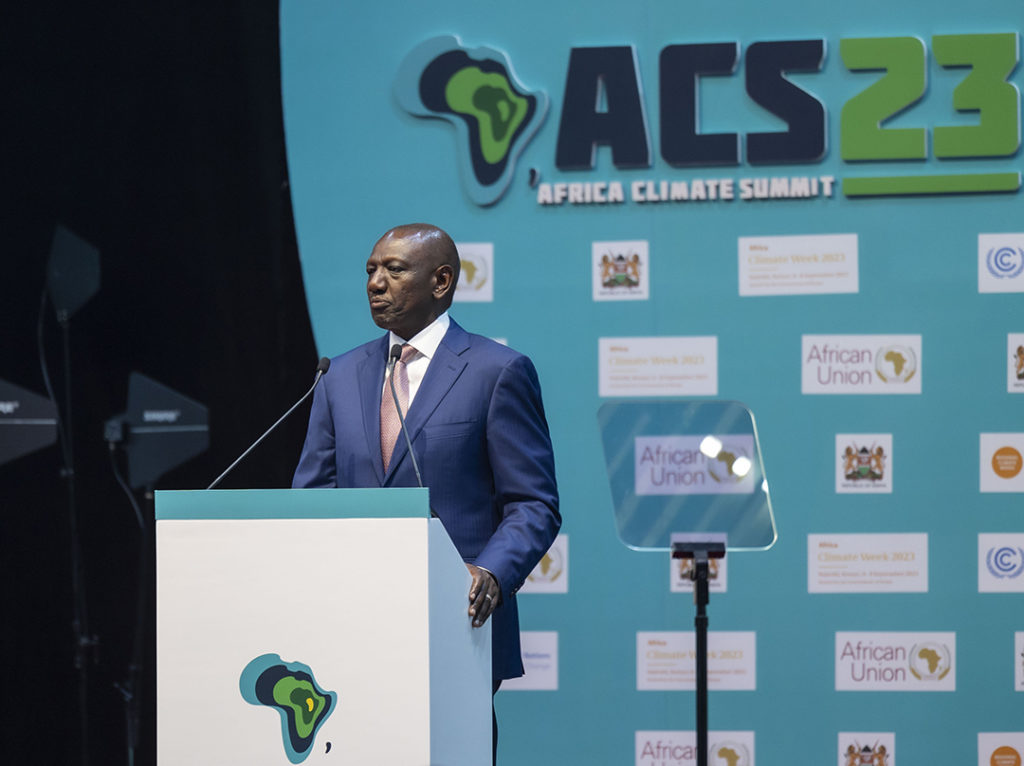
Credit: Paul Kagame/Flickr.
Carbon credits: a controversial topic at the Africa climate summit
The Africa climate summit took place from the 4th to the 6th September 2023 in Nairobi, Kenya. Its final declaration presents Africa’s position on climate change ahead of the 2023 United Nations Climate Change Conference, COP28, later in the year. Despite being the continent with the lowest carbon emissions, it stands to be hit the hardest.
BY OZAYR PATEL | MAIL & GUARDIAN
THE SUMMIT called for financing to be improved and tailored to Africa’s needs. The leaders argued that the financing cannot place the continent in more debt and, therefore, the call for restructuring it and for debt relief.
The financing for a greener energy transition, as they pointed out, should come from those who have polluted the Earth the most. The declaration also called on developed countries to honour their pledges to developing nations and to apply a carbon tax in key areas such as aviation and maritime.
Kenya’s President, William Ruto, was vocal about Africa’s renewable potential. He strongly suggested that this must be part of the climate change solution because the continent has huge solar potential and it needs to pursue deals and partnerships with other nations.
A key outcome from the summit saw funding pledges of $23 billion for climate change mitigation and adaptation. Mohamed Adow, the director of the think-tank Power Shift Africa, stated that Africa must demand what is owed to it and that polluters must be accountable.
African Carbon Market Initiative
The summit also yielded a controversial topic, which divided opinion among Africa’s leaders — the African Carbon Market Initiative (ACMI).
The CMI came out of last year’s COP27 and comprises African leaders and industry specialists. Carbon credits refers to that when a company pollutes, it buys credits. That credit is used to fund an initiative that removes carbon to the same amount the company has polluted. Thus, polluters fund projects to remove carbon emissions without actually curbing their own carbon emissions.
According to economist Jonathan Colmer “these projects include reforestation and forest conservation, investments in renewable energy, carbon-storing agricultural practices and direct air capture”.
However, many detractors argue that carbon credits are a form of greenwashing— when a company claims it is doing something environmentally good, but it is not; it is a way for companies to continue polluting and give the impression that they have compensated it by buying credits, but these are difficult to quantify.
Those for it say it is an opportunity to improve economic development and that it will curb greenhouse gas emissions.
Opposing views
The United Arab Emirates (UAE) believe that the African Carbon Market Initiative (ACMI) is a crucial tool in decarbonisation and has thrown its support behind the initiative. The country has committed to buying $450 million of carbon credits from the Africa Carbon Markets Initiative (ACMI).
“Our collaboration with the ACMI provides carbon market buyers in the UAE and wider region with access to high-quality carbon credits in Africa. This does not only help to unlock Africa’s carbon credit generation potential, but also supports sustainable investment opportunities and long-term climate impact,” Sheikha Shamma bint Sultan bin Khalifa Al Nahyan, president and chief executive of the UAE Independent Climate Change Accelerators, said in a statement.
Adow and his group released the report “The Africa carbon markets initiative” saying African countries must stay away from the carbon initiative, calling it “a wolf in sheep’s clothing”. The report states that: “Carbon markets benefit the polluters, the fossil fuel companies and the market brokers. It will drive pollution beyond climate limits and puts neo-colonial obstructions to the attainment of genuine African development pathways.”
Colmer wrote that there are some important aspects to make the carbon credit initiative a success. He argues: “If a landowner is paid to not cut down trees, but had no plans to cut them down in the first place, the project does not deliver additional emissions savings. The landowner is paid for doing nothing and the buyer’s emissions are not offset.”
Colmer also discusses the issue of permanence, because carbon emissions can stay in the atmosphere for long periods. He mentioned two projects for carbon removal — air capture and forest growth.
Air capture is technology that grabs carbon from the atmosphere and stores it deep in the ground. Forests are known to store carbon, but very often these are green deserts — plantations that reduce biodiversity. When forests are logged, or there is a fire, the carbon is released back into the atmosphere.
Some people argue that the mass planting of trees can delay climate change by reducing some of the carbon in the air while other initiatives take shape.
Carbon markets and carbon credits have potential to reduce greenhouse gas emissions, but they must have climate mitigation as a goal and — crucially — it needs to reach the people who are most vulnerable to climate change.
These companies that are heavy polluters must be forced to lessen emissions. Without doing so, unscrupulous companies will purchase carbon credits and accelerate unmanageable climate change.

